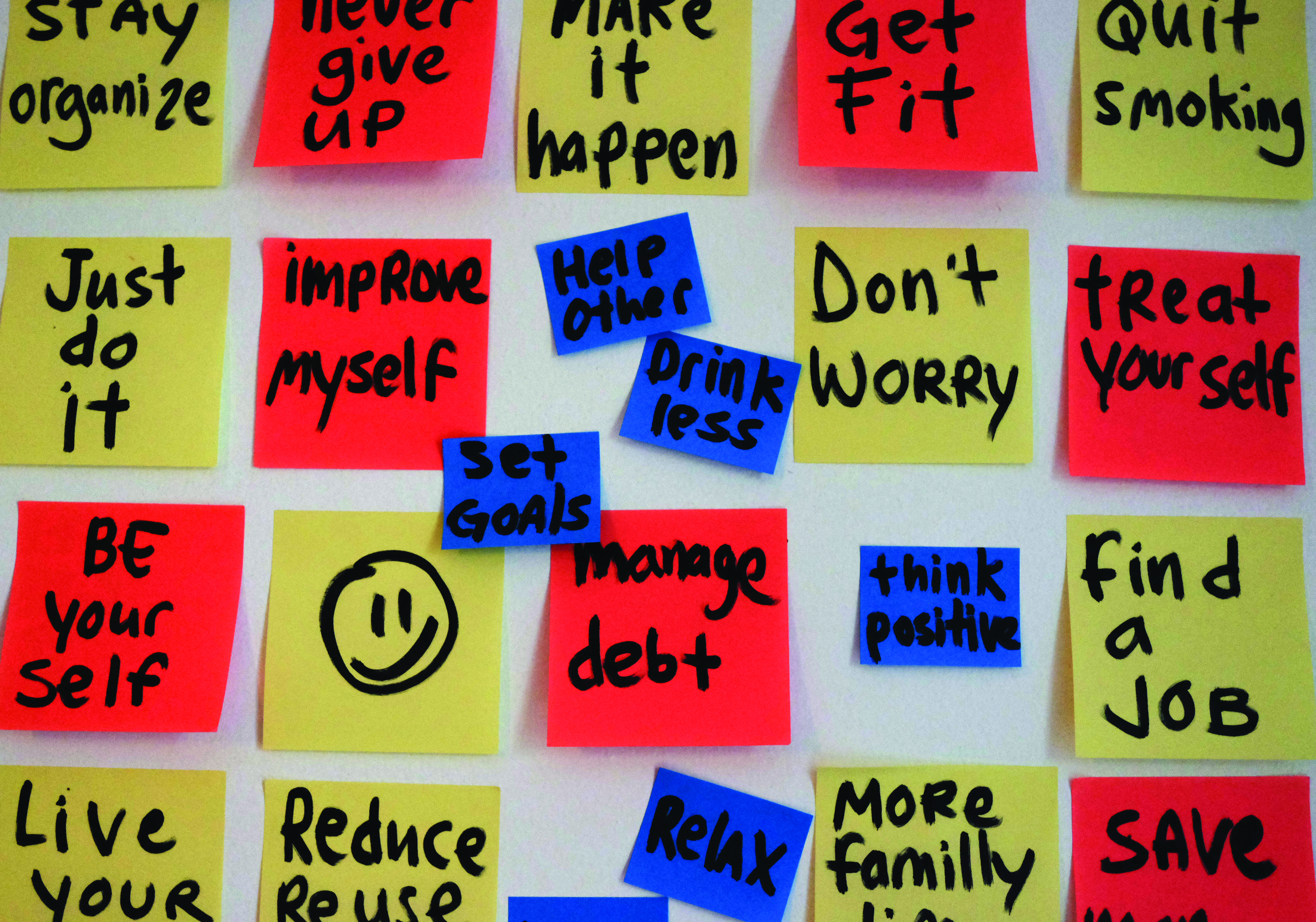A psychologist provides tips on how students can achieve their best during a Concordia workshop
Undoubtedly, the dawn of 2016 invites us all to make promises to ourselves. Meanwhile, maybe you’re feeling a little lost on how to get at those ambitions and stay on track. With that in mind, Concordia’s Counselling and Psychological services has workshops to help you with that. Psychologist Dale Robinson offered 10 strategies on how to achieve your personal best at her workshop on Jan. 6.

While it’s great to set new goals for yourself, it’s the follow-through where we see ourselves (and others) come up dry. Here are Robinson’s tips:
- 1. Write em’ down! Recording your goals, whether they are big or small, is an investment. By putting an idea into the physical realm, you create not only a reminder for yourself to do the thing, but you also make a “contract” of sorts with yourself, as Robinson said. These personal commitments are the baseline to guide you to the fulfillment of your goals.
- 2. Define your goal in specific, measureable terms. Creating straightforward goals will help you achieve exactly what you’re looking for. Look for ways to define what it is you want by asking yourself what your goal will look like when it has been obtained.
- 3. Visualize it! Robinson said that effective goals should be visualized, if possible. In this sense, paint yourself a vivid picture of what the end goal looks like. How have you defined it? That’s part of what you should be seeing. Create a mental image of all of the aspects that come together to form your ultimate goal. Visualization is a powerful motivator, according to Robinson.
- 4. Achieve your best, but don’t over do it. Don’t stress too much about elements that are not within your control. Goals that involve outside determining factors, such as ones involving other people, are more often unachievable than not. Robinson suggested asking yourself: are you aiming too high? Is what you’re asking of yourself reasonable, and ultimately achievable? She adds that we should practice functioning in the range of what you’re capable of, and what is challenging.
- 5. Break it down. The end goal is only one part of the many steps you must take to achieve it. Analyze your goal. Find the quantifiable aspects of it, and use them to create milestones on your path to goal completion. If you’re aiming to have high grades, for example, Robinson recommends progressively building the skills that will help you achieve that is part of the process. In this case, you should think about elements such as your writing skills, studying practices and your ability to manage time.
- 6. Have realistic deadlines. One of the biggest factors in goal completion is how much time you’ve set aside to work on your projects. When you have non-specific deadlines for broad goals, the likeliness that you’ll put whatever it is on the backburner is high. By creating a timeline for your goals, you recognize the priority you give to them. Think about how much time you need to reach each part of your goal, and then add a little bit of extra time, because you’re a human and sometimes we all need a bit more time, said Robinson.
- 7. Scrutinize for potential setbacks and obstacles. Like Murphy’s Law states, “whatever can go wrong, will go wrong.” Issues that may arise can be as typical as being called in for work or not having enough time, but that’s not to say something completely unexpected couldn’t happen. Even procrastination should be taken into consideration.
- 8. Make plans to deal with problems. This is pretty straightforward. Figure out what may go wrong, and then find appropriate solutions.
- 9. Check back in with yourself. According to Robinson, one of the leading factors behind unachieved goals is that we forget to check up on our own progress. Check back in on your goals (because you wrote them down, remember?) for a few minutes at the end of each week. That way, you’ll see if you’re sustaining your game plan and modify accordingly if you’re not.
- 10. Treat yourself! Aside from reaching your goals, one of the best parts of the process is rewarding yourself along the way. Nothing happens overnight, but don’t forget to give yourself credit for all that you’re doing! At the end of the day, you did this, and you are continuously working to achieve your personal best. And that totally warrants some ice cream.



